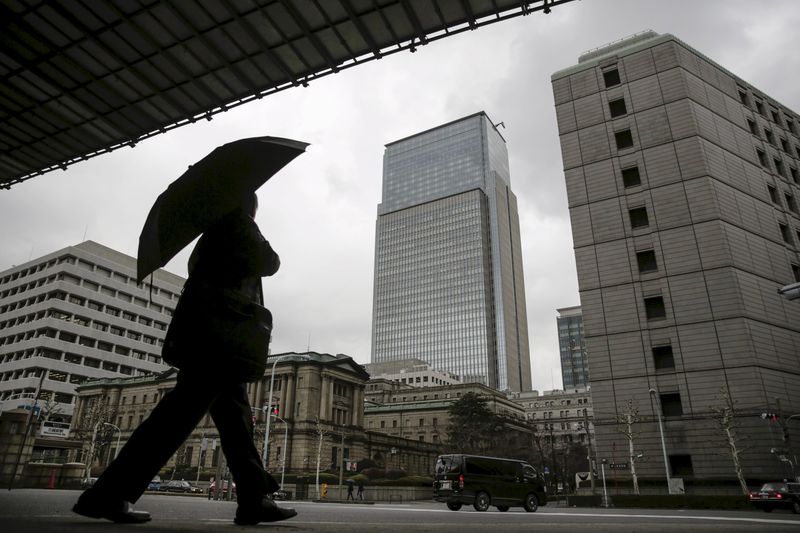By Kaori Kaneko
TOKYO (Reuters) - Japan's economy is expected to have narrowly avoided another recession at the start of 2016 but economists in a Reuters poll also predicted that growth and inflation will remain tepid this year, held back in part by the recent sharp rise in the yen.
The Bank of Japan surprised in a split January decision to implement a tiny negative interest rate, -0.10 percent. But the yen has rallied by more than 10 percent against the dollar since then, spurring debate over whether it was a good move.
Half of the 16 analysts surveyed on April 6-12 said the BOJ, which has been struggling for nearly two decades to beat back deflation, will further ease already-aggressively loose monetary policy at its April 27-28 meeting.
Three said the central bank would ease policy at its following meeting, in June, and the remaining five picked July as the likely date.
Asked what steps the BOJ will take, 10 analysts said the central bank will adopt a combination of cutting rates deeper into negative territory and boosting its asset purchasing, bringing one of the policy rates to -0.30 percent by the third quarter at the latest, from -0.10 percent now.
The BOJ's surprise move to adopt negative rates is an effort to encourage banks to lend to businesses and consumers instead of hoarding reserves with the central bank. That, in turn, is supposed to lift demand as well as inflation.
But many already see negative rates as a risky policy.
Nearly three-quarters of Japanese companies in the latest Reuters Corporate Survey, published late last month, said the BOJ's negative rate policy was a bad move.
"In a situation where corporate sentiment has peaked out and the expected inflation rate is also on the decline, recent progress in the yen's appreciation will make it difficult for Japan to beat deflation," said Atsushi Takeda, chief economist at Itochu Economic Research Institute.
"Further (BOJ) easing will be unavoidable to stop the trend of returning to deflation," Takeda said.
The world's third-largest economy is seen expanding an annualized 0.5 percent in the first quarter, almost half the already-weak 0.9 percent projection made last month, according to forecasts from 28 respondents in the poll.
In the final quarter of 2015, the economy shrank an annualized 1.1 percent, hurt by weak consumer spending, and worries remain there could be a second straight quarter of contraction - the definition of a technical recession.
IS "ABENOMICS" WORKING?
Ten of 16 analysts in the poll said Prime Minister Shinzo Abe's 'Abenomics' stimulus policies were supporting the economy to some degree, while two said they was helping substantially. Four said the policies were "not really contributing".
The core consumer price index (CPI), which includes oil products but excludes volatile fresh food prices, will only rise 0.3 percent in the fiscal year that began April 1, the poll showed. In a poll a month ago, analysts projected a 0.4 percent increase.
Core inflation is seen increasing to 1.0 percent for fiscal 2017 excluding the impact from a planned sales tax hike next April, unchanged from last month's survey.
There is speculation Abe may delay that sales tax hike and announce more government stimulus steps to help growth.
